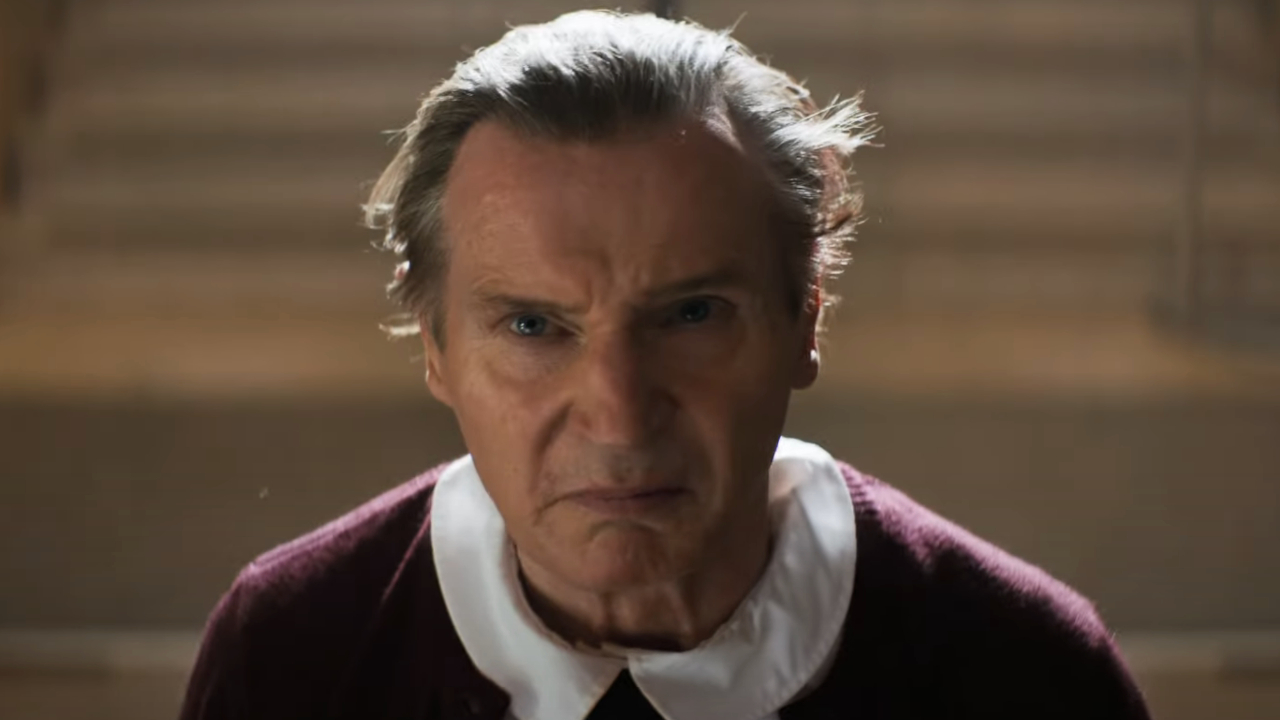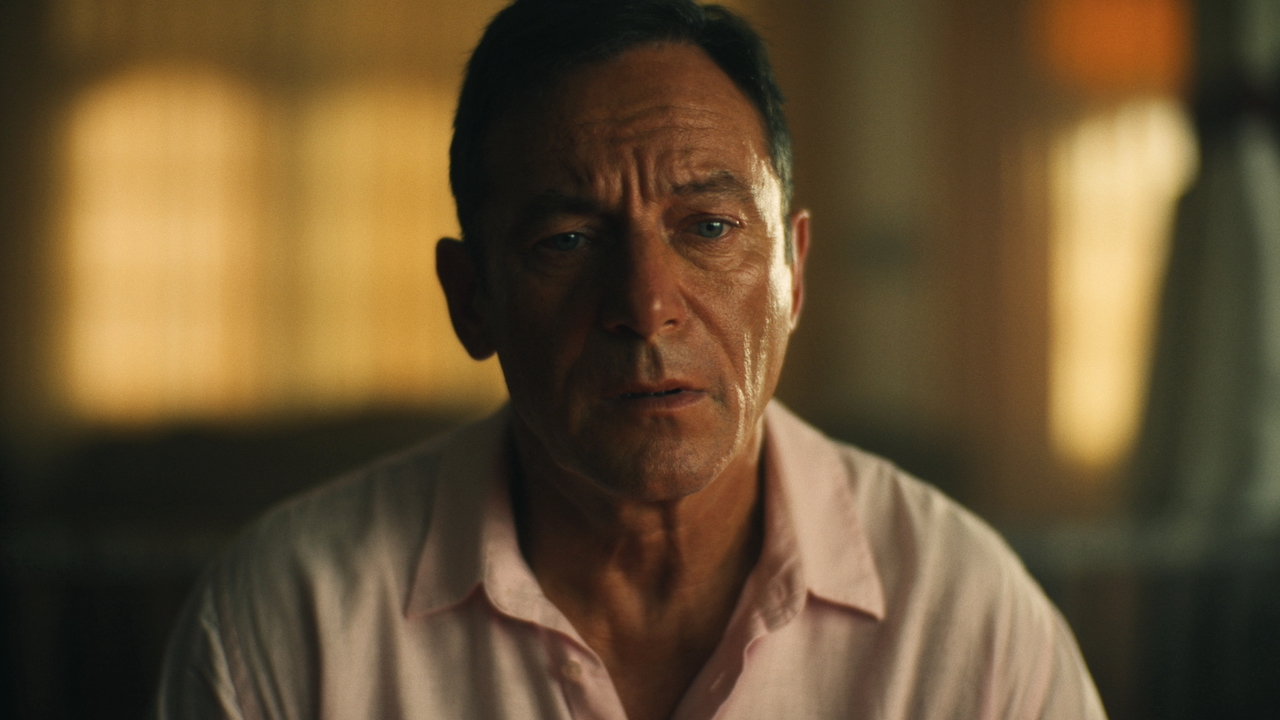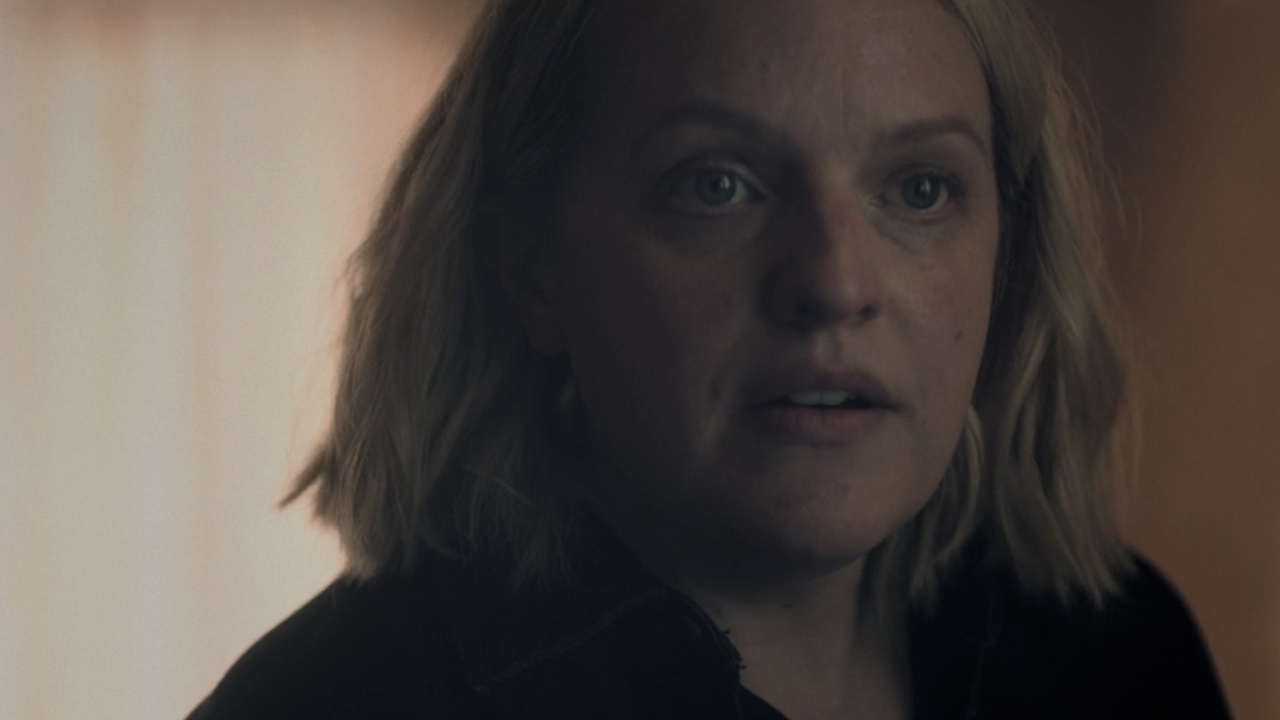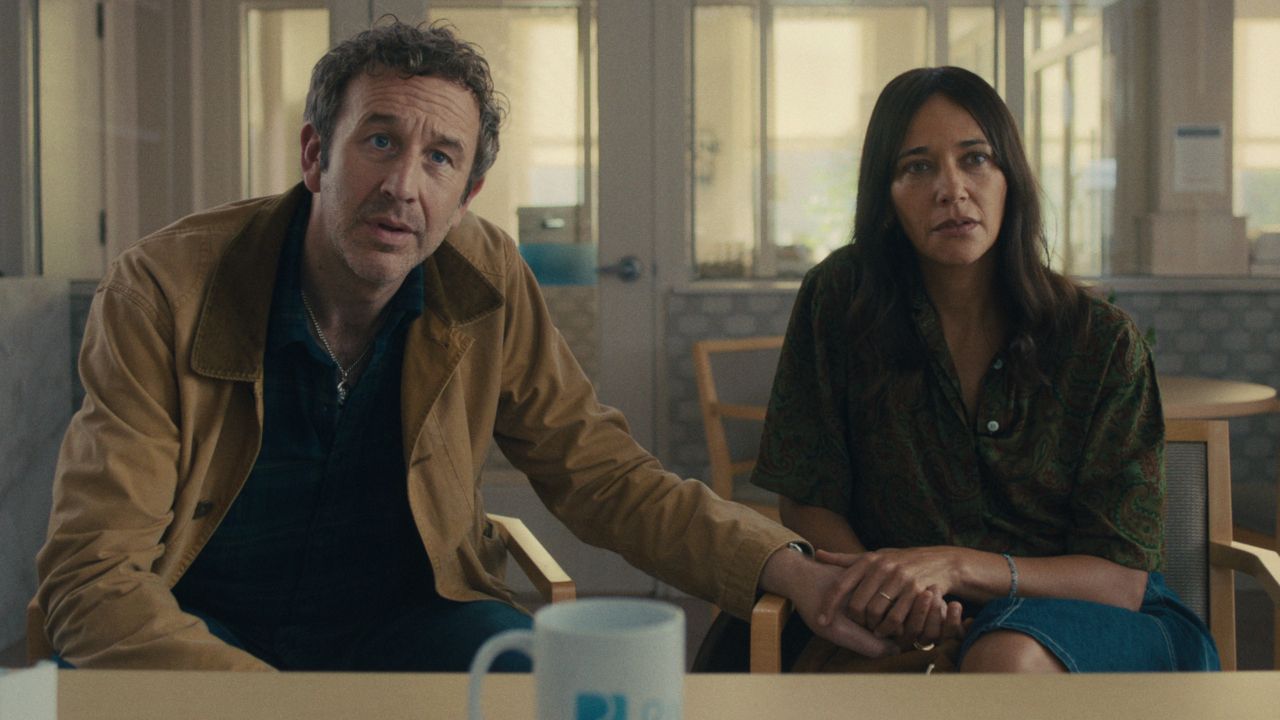Adapting Stephen King's Gramma: 2014's Mercy Takes All Of The Terror Out Of A Terrifying Story
Yikes.
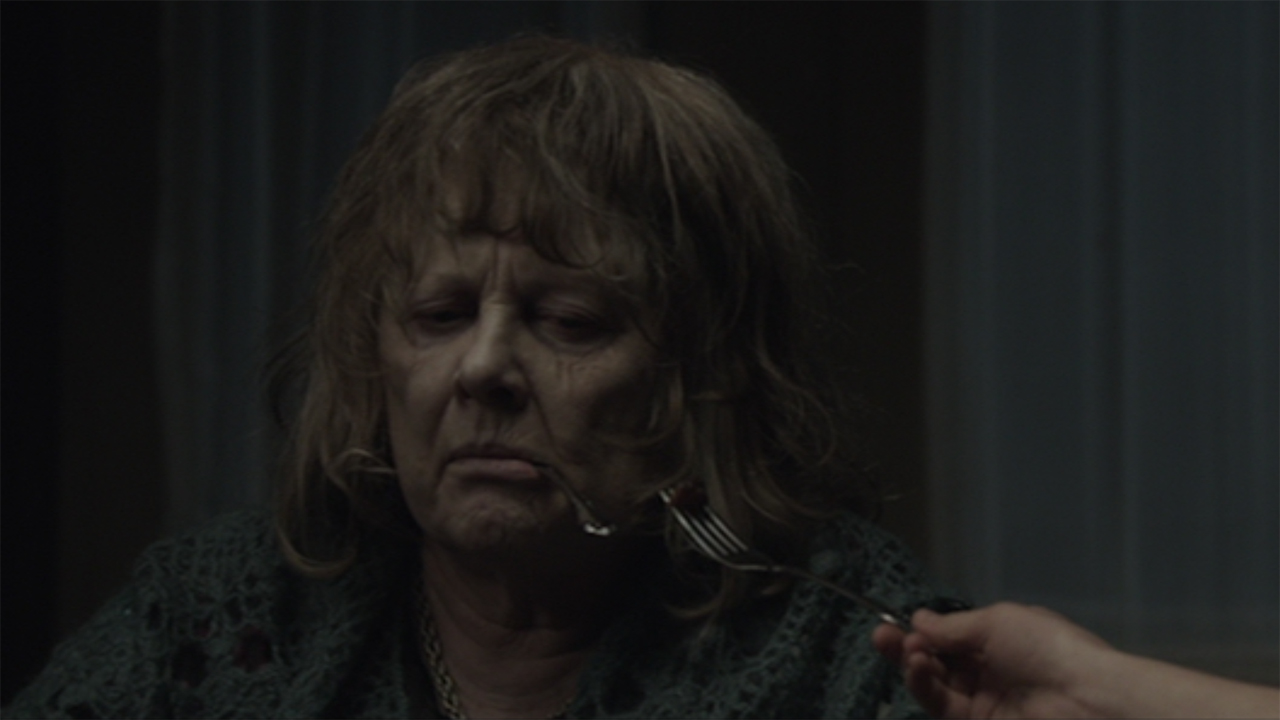
In the early 2010s, Jason Blum and Blumhouse Productions quickly became a dominant force in the horror genre. The producer and his company experienced remarkable success when Oren Peli’s Paranormal Activity became a phenomenon in the fall of 2009, the movie earning instant comparisons to The Blair Witch Project. It not only helped kick start the found footage wave of the era, but established a Blumhouse reputation: big scares on a micro-budget.
While still producing movies and television shows in other genres, Blumhouse made horror a cornerstone, and in addition to producing annual Paranormal Activity sequels, they also teamed up with filmmakers like James Wan, Scott Derrickson and James DeMonaco for Insidious, Sinister, and The Purge (all of which inspired their own respective sequels). It made all the sense in the world that the production company would inevitably develop a Stephen King adaptation, and such a project got in the works in late 2012 with Mercy, a big screen take on the short story “Gramma.”
Jason Blum told Collider in 2014 that gears originally started turning thanks to a meeting that the producer took with filmmaker McG. The point of the chat was initially meant to be about McG potentially directing a Blumhouse-produced feature, but the conversation turned, and the producer/director told Blum about a screenplay by Matt Greenberg that was already in the works. Blum was on the hunt for what he described as “low-budget, high-concept movies,” and Mercy fit the bill. Plus, the deal with Stephen King for the rights had already been completed.
Entering production in 2013 with director Peter Cornwell at the helm, Mercy was made as the first feature adaptation of “Gramma” – though it was the second time that the material crossed mediums, as Harlan Ellison developed the short story as an episode of the 1986 reboot of The Twilight Zone. Unfortunately, I can’t imagine anyone in the world, Constant Readers or not, who would call it a worthy remake, and I’ll dig into why in this week’s Adapting Stephen King.
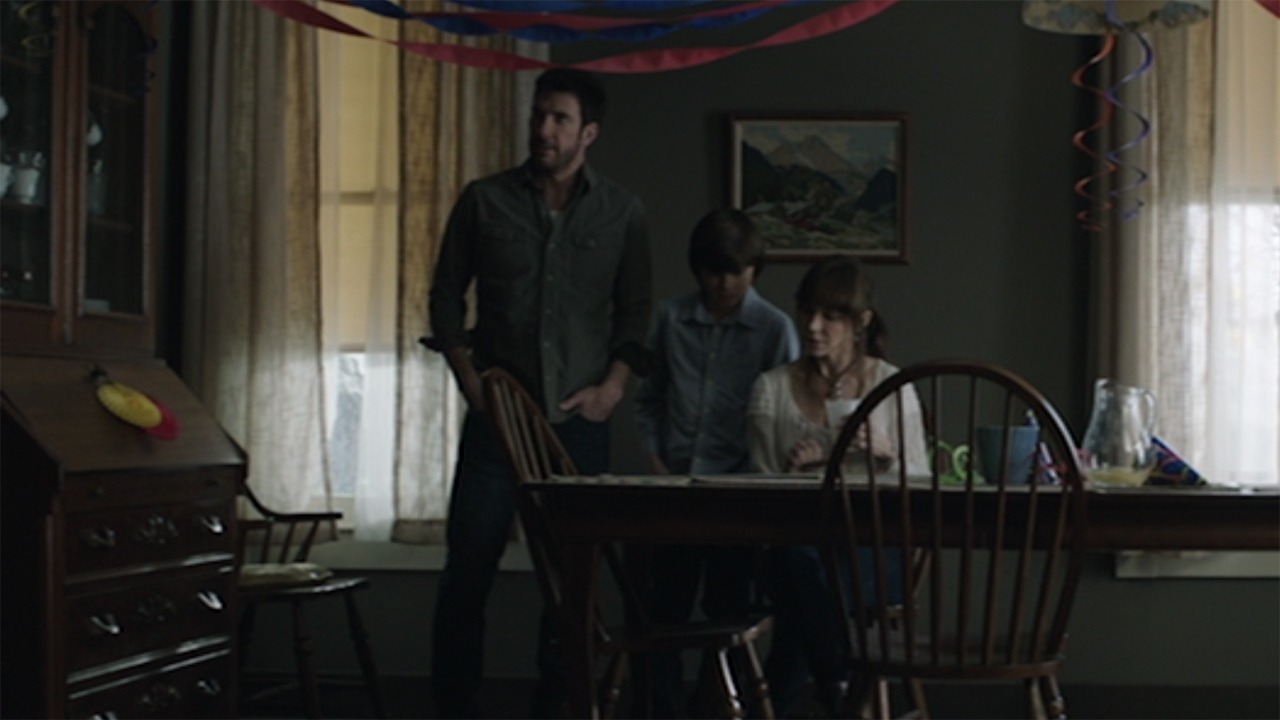
How Peter Cornwell’s Mercy Differs From The Twilight Zone’s “Gramma”
When Harlan Ellison and the writing staff of The Twilight Zone revival in the mid-1980s began trying to adapt Stephen King’s “Gramma,” a standout adjective was used to describe the short story as source material: “impossible.” Obviously it ultimately wasn’t, and even more impressive is the fact that he didn’t have to deviate from King’s work all that much. The setup of a young boy being left alone at home with his dying grandmother isn’t cinematic, but Ellison and co-director Bradford May made it work with voice over narration that translated the protagonist’s internalized fear and a house full of atmosphere.
With a feature film runtime to fill, Matt Greenberg didn’t have the luxury of trying to directly bring Stephen King’s writing into live-action, and – like the filmmakers behind Children Of The Corn, Graveyard Shift, and 1408 before him – he had to add quite a lot of padding to the material. The movie is actually incredibly short, running only 79 minutes with end credits, but what’s pretty ridiculous is the fact that King’s work ends up getting totally swallowed by what Greenberg invents, and there is actually very little in Mercy that is directly from the short story (beyond the broad strokes).
The closest that Mercy gets to The Twilight Zone’s adaptation of “Gramma” (which is to say the closest that it gets to being a faithful interpretation of King’s short story) is a stretch of narrative that begins around the 52 minute mark and ends when the film gets to the 60 minute mark – so about eight minutes, or 10 percent of the total runtime. It’s during this point in the film that George (The Walking Dead’s Chandler Riggs) is left alone at home with his grandmother, Mercy (Shirley Knight), as his mother, Rebecca (Frances O'Connor), takes his brother, Buddy (Joel Courtney), to the hospital. Like in the original adaptation, George is forced to face his fears about his sick Gramma, and he thinks she is dead before being horrified by an onslaught of witchcraft, but before too long he’s sprinting out of the house to try and get help from the neighbors.
CINEMABLEND NEWSLETTER
Your Daily Blend of Entertainment News
Woven into the grander narrative of Mercy are the big revelations about George’s grandmother that are included in the Twilight Zone, specifically her reading from a Necronomicon after learning that she can’t have children and making a pact with a demon named Hastur to allow her to become a mother, but overall there really is no comparing the approaches of the TV episode and the movie (and I say that as someone who doesn’t think that the former has aged all that well aesthetically).

How Peter Cornwell’s Mercy Differs From Stephen King’s Short Story
When compared to Stephen King’s “Gramma,” Mercy does a lot of stretching with the existing material. For example, it expands the timeline by having the story start when George, his mother, and his brother first go to live with George’s grandmother (after she has some kind of medical episode), and the secrets about the titular character aren’t uncovered via gathered memories in one night, but instead by having George ask around about Mercy and piece together information from the local pastor (Eddie Jones) and his uncle, Lanning (Mark Duplass). There is, however, also plenty of pure invention and deviation from King’s work as well.
Mercy actually wastes zero time at all throwing in a bit of new, as the movie opens with Mercy as a young woman (Pepper Binkley) nursing one of her children and watching as her husband, Frank (Chris Browning), kills himself with an axe to the forehead. This is far more dramatic and violent than the short story, where Mercy’s husband passes away from a heart attack – and it’s in the aftermath that George and his family move in with his grandmother.
There is also quite a bit of character shuffling and replacement. In Mercy, Rebecca is a triplet with the aforementioned Lanning as a brother and a sister named Jinny (Abigail Rose Solomon). Neither of those siblings are in the short story, and instead George’s mom has many more siblings of various ages, including brothers Larson, George, and Franklin, and sisters Stephanie and Flo. Lanning, who is depicted to be a bit off-kilter/an alcoholic, can generously be called an amalgam of George and Franklin, as the former is mentioned as being drunk in one of the protagonist’s recollections, and the latter ends up being killed as a result of a hex by his mother.
Also created for the movie is Jim Swann (Dylan McDermott), a neighbor who seems to have a romantic spark with Rebecca… and who ends up being a part of a nonsensical antagonist twist that suggests that he is somehow an ally of Mercy’s who accepted some kind of deal so that he could be with Rebecca. It doesn’t actually add anything to the plot beyond a conflict George encounters in the third act when the kid is trying to escape, and there is no resolution as Jim ends up being quickly killed by a speeding car that rams into him shortly after George gets away from him.
And speaking of nonsensical things, the ending of Mercy is completely different than the short story, and is neither very logical nor interesting. In Stephen King’s version, George succumbs to his Gramma’s witchcraft and comes under the control of the same demon she conjured with her Necronomicon – and after killing his Aunt Flo with a hex he makes plans to torment his bullying older brother. None of this is in the film.
Instead, Mercy comes to an end when Hastur sets George up to kill himself just like his grandfather, but instead of sticking an axe in his own head, he sticks it in Mercy’s as she is creeping up behind him. The next day, with seemingly zero consequences in the aftermath of events, George, Rebecca and Buddy come together to bury Mercy’s body in a field next to a tree, and voice over narration from the protagonist delivers a generic monologue about how dark times can be a blessing with the support and power of family.
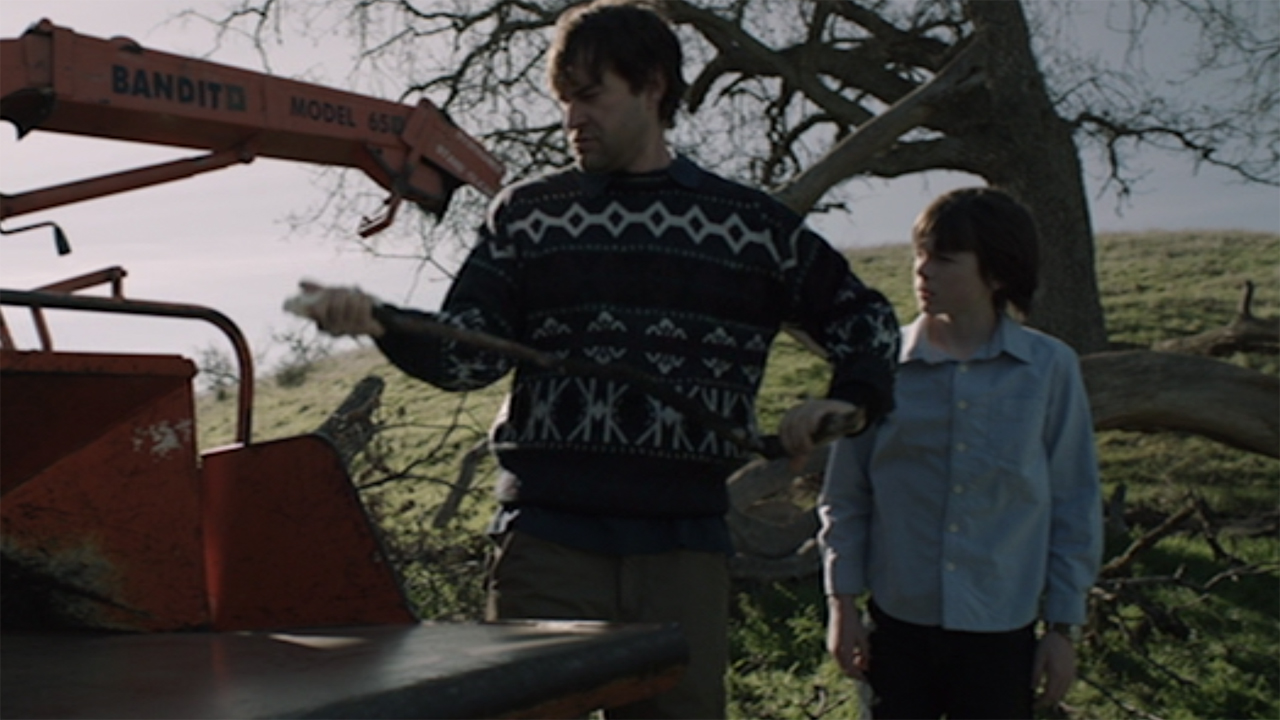
Is It Worthy Of The King?
While written with a supernatural bent, “Gramma” is an exceptionally personal story for Stephen King. Similar to George in the story, King was young when his mother moved him and his brother to Durham, Maine so that she could take care of her aging parents, and he ended up being the one to discover that his grandmother had died when he walked into her bedroom one day. Per the Spring 1984 issue of Weirdbook magazine (via Stephen King: Art Of Darkness by Douglas E. Winter), he used the mirror in his mother’s compact to try and tell if she was still breathing – an idea he got from the movies – and she failed to fog it. Decades later, he commemorated the horror of the experience with his fiction.
“Gramma” is a terrific and atmospheric short story not just because of the creep factor provided by the inclusion of witchcraft, but because it plays on a common phobia of old people – which is psychologically rooted is memento mori. As a child, George has no real reference point for death, and not only has his grandmother become an incarnation of the terrifying and mysterious end of all things, but the incredible responsibility of her care is put in his inexperienced hands. Any reader can relate to the weight and dread of the circumstance.
Mercy captures none of this intent and/or spirit. The remarkable personal stakes in the source material are nowhere to be found, and it lacks any kind of momentum. “Gramma” is rendered as a slow drip tale about a kid who moves in with a grandmother that he loves, discovers that she is evil/possessed, and ends up driving an axe into her face. It doesn’t have a single scare to speak of, as even the cheap shocks fail to inspire even the slightest jump, and you are left wondering how the hell so many talented people got involved with such an unremarkable project.
It does have at least one standout legacy in the history of Stephen King adaptations: it seems to be the first and only feature project based on a King story/book that failed to get either theatrical or small screen distribution, and instead had to go straight to home video. Of course, that’s a bit of trivia that comes with certain connotations, and Mercy deserves absolutely every single one of them.
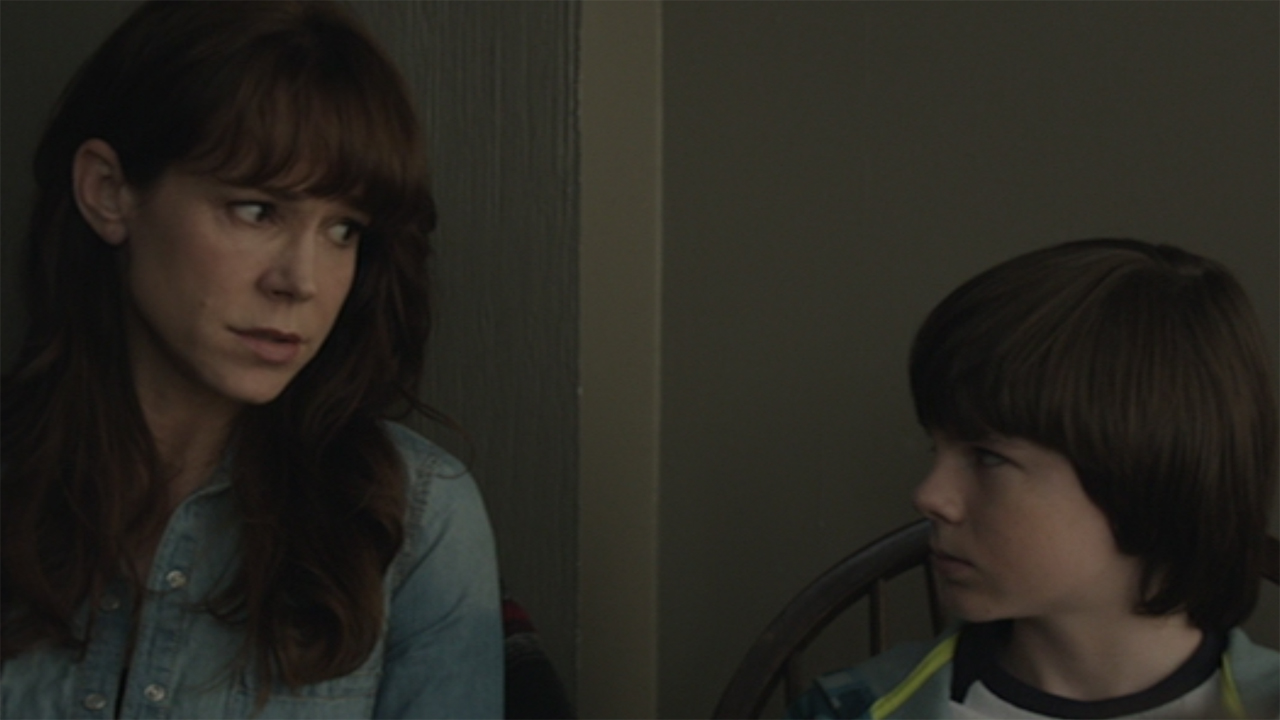
How To Watch Peter Cornwell’s Mercy
Should you care to burn 79 minutes of your precious life, Peter Cornwell’s Mercy is extremely accessible in the digital age – though those of you who are into physical media and building the ultimate Stephen King collection have to settle for a the DVD (which contains zero special features). The movie can be found available for rental and purchase at all of the major online outlets, including Google Play, Amazon Prime, Vudu, and Apple TV.
Stephen King fans didn’t have to wait long for more adaptations in the wake of Mercy’s release, as Mikael Salomon’s Big Driver premiered less than two weeks after it in October 2014 – and, as such, it will be the next work under the microscope for this column. Given that it was made as a movie for the small screen, you’ll find my feature next Wednesday in the CinemaBlend TV section, and in the meantime you can discover all of the previous Adapting Stephen King installments by clicking through the banners below.







Eric Eisenberg is the Assistant Managing Editor at CinemaBlend. After graduating Boston University and earning a bachelor’s degree in journalism, he took a part-time job as a staff writer for CinemaBlend, and after six months was offered the opportunity to move to Los Angeles and take on a newly created West Coast Editor position. Over a decade later, he's continuing to advance his interests and expertise. In addition to conducting filmmaker interviews and contributing to the news and feature content of the site, Eric also oversees the Movie Reviews section, writes the the weekend box office report (published Sundays), and is the site's resident Stephen King expert. He has two King-related columns.
